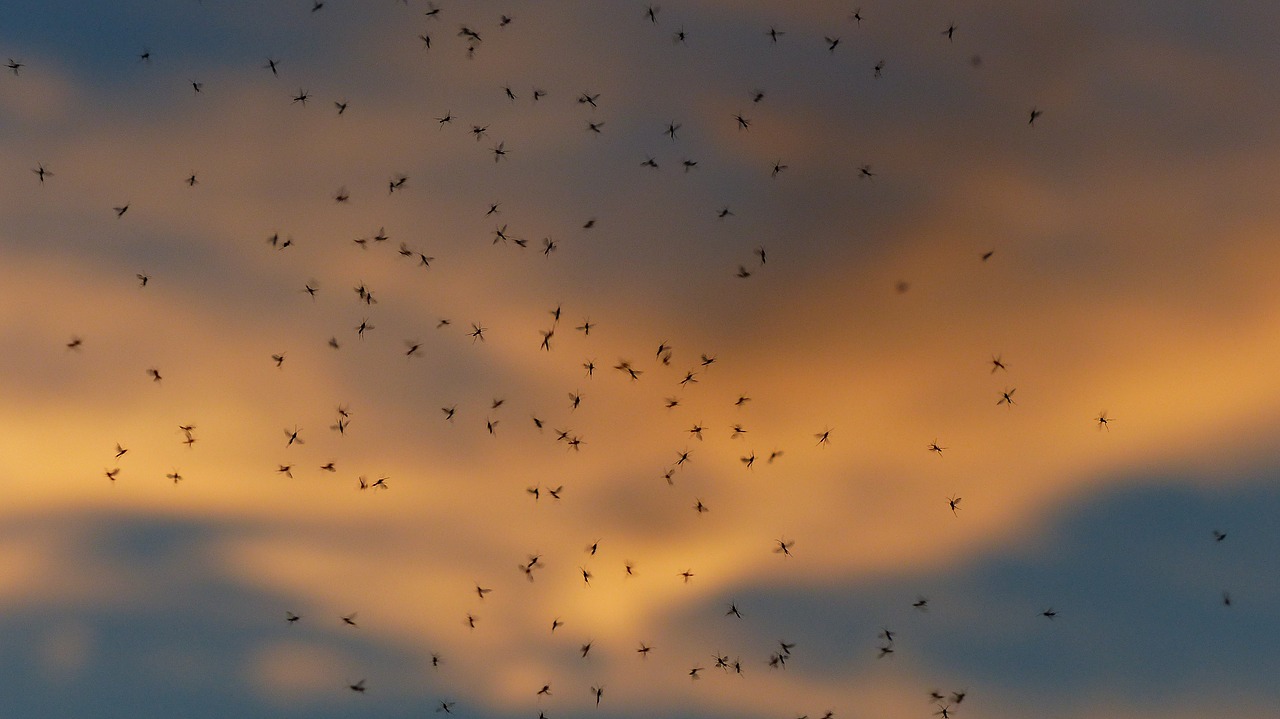
The U.S. Department of Agriculture is studying whether the novel coronavirus can be spread through mosquito transmission. Image by Hans Braxmeier from Pixabay
The U.S. Department of Agriculture is studying whether the novel coronavirus can be spread by mosquitoes, although the theory was ruled out last month by the World Health Organization and independent experts say such transmission is virtually impossible.
The research effort is cited in an internal briefing memo on the coronavirus response dated last week and reviewed by ProPublica. The memo does not say how much money the study will cost, and the USDA did not respond to questions.
Joseph Conlon, a former U.S. Navy entomologist and technical adviser for the American Mosquito Control Association, said the possibility of mosquito transmission of the coronavirus is “nil.”
Conlon has encountered claims online and in his email inbox that the government is covering up mosquito transmission of the coronavirus. He called that idea a “conspiracy theory.”
Conlon said the USDA research could help stop speculation about mosquito transmission, a notion that has gained some traction as the global death toll rises.
The WHO has definitively stated that the coronavirus cannot be transmitted via mosquitoes, while the U.S. Centers for Disease Control and Prevention said it “has no data to suggest” that the coronavirus is spread by mosquitoes or ticks. Independent experts said there has been no demonstrated case of any of the family of viruses to which the novel coronavirus belongs being transmitted by a mosquito.
“Mosquitoes cannot transmit the disease,” said Tarik Jasarevic, a WHO spokesman, because the virus does not widely circulate in blood and is more prevalent in lungs and the respiratory tract.
Even if the mosquito did digest the virus, it would have to survive the digestive process and transfer to the insect’s salivary glands to then infect a human, experts said.
“It’s an extremely complicated process, and there are a number of different barriers there,” Conlon said.
In a tweet last week, the United Nations office in Geneva said there is “NO evidence to date” that mosquitoes carry the coronavirus, and it urged people not to spread rumors and to be vigilant against “disinformation.”
Jacquelyn Mason, a researcher at First Draft News, which tracks disinformation on the internet, said Tuesday that she had found relatively few social media posts claiming that mosquitoes can transmit the coronavirus, and the theory does not appear to be pushed intentionally by any particular group.
Fox News published a story last week addressing the question of mosquito transmission, and it quoted a health expert dismissing the possibility.
The CDC did not respond to questions. Its assessment about mosquito transmission first appeared in an FAQ section of its website in late March, according to versions of the page captured by the Internet Archive.
The U.S. government document seen by ProPublica said the USDA is identifying animals susceptible to coronavirus infection to determine if mosquitoes and midges, a type of small fly, could be vectors.
Analysis of the coronavirus genome suggests that it originated in bats before eventually spreading to humans, and research into how animals react to the coronavirus is seen as crucial to understanding it.
In addition to the USDA effort, scientists in Germany, the Netherlands, China, Canada and elsewhere are also studying animal susceptibility to the coronavirus, and they have thus far determined that ferrets, cats and dogs can be infected, Jasarevic said. Other animals being investigated include pigs, chickens and turkeys.
The USDA has a well-established role in figuring out animal susceptibility to viruses. After the SARS outbreak, researchers within the agency’s Agricultural Research Service published experiment results showing that domestic poultry were not infected with the virus and did not spread it to humans.
Leyi Wang, a veterinary virologist at the University of Illinois, helped to confirm recently that a tiger at the Bronx Zoo had contracted the coronavirus. In that case, it’s more likely the virus was transmitted by a zookeeper than a mosquito, Wang said.
“People still need to avoid mosquito bites,” Conlon said. “Mosquitoes transmit several other diseases and have their own immune issues that would make people particularly susceptible to a coronavirus infection.”
This article was original published by ProPublica and is republished here under a Creative Commons license.
Sign up for the QuackTrack.org newsletter below!













